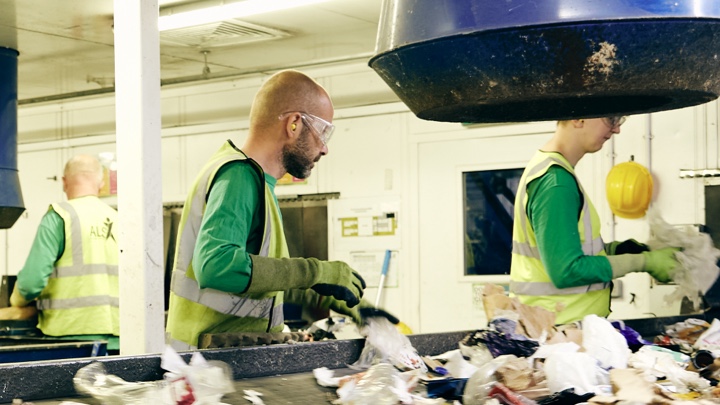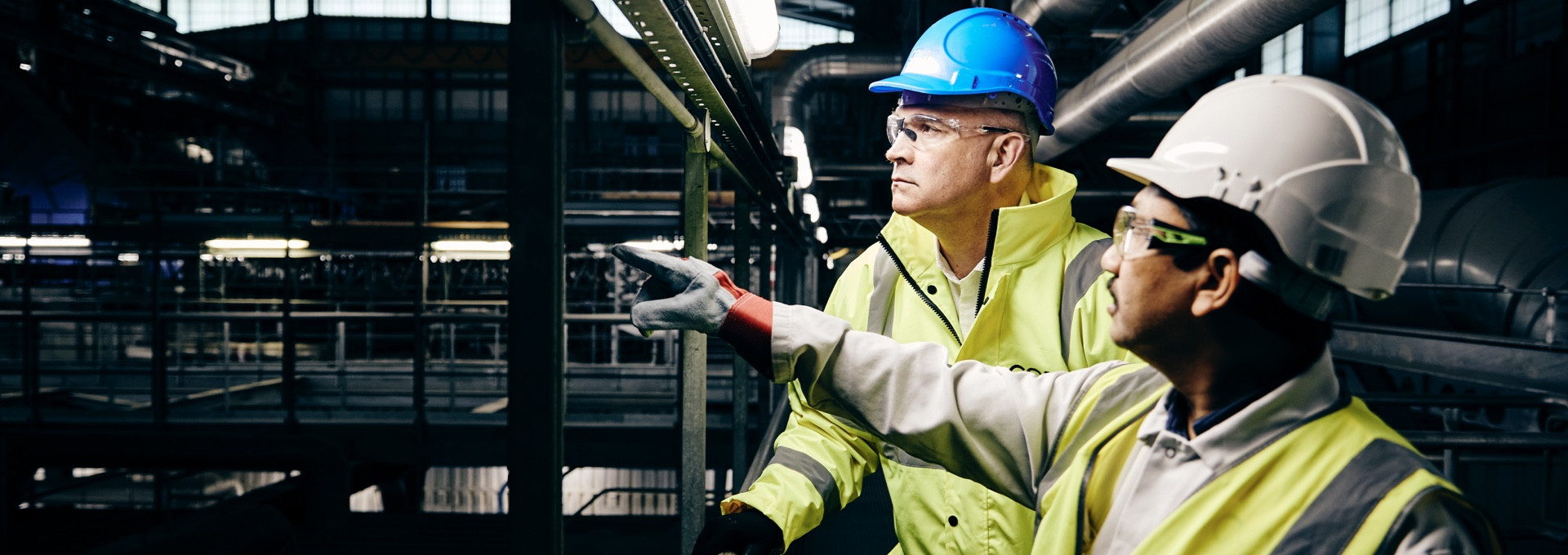 Friday, 25th September, 2020
Friday, 25th September, 2020
Why Cory Riverside Energy is supporting Recycle Week
At Cory Riverside Energy, we are fully aligned with the ethos of Recycle Week: to galvanise the public into recycling more of the right things, more often. The theme for 2020 is particularly close to our hearts, because it gives us the opportunity to acknowledge the heroic efforts of our recycling and waste workers, who stepped up to deliver critical services despite the concerns and difficulties presented by the Covid-19 pandemic.
As a recycling and waste management company, it is very encouraging to see the Recycle Week statistics that, following lockdown, more people in the UK are prepared to change their lifestyles to help the environment (now 73%, up from 69% in 2019), and nearly 9 in 10 households say they ‘regularly recycle’.
In 2019, our Materials Recycling Facility in Wandsworth sorted 68,766 tonnes of material, sending 59,097 tonnes of paper, cardboard, glass, plastic and metal to be reprocessed into recycled materials. It was a challenging year for recycling, particularly for paper grades. Restrictions in some markets quickly led to global oversupply, demonstrating the importance of having a well-developed market for recycled material. We still have work to do in order to achieve this as an industry.
2020 has proven equally challenging for the industry. We are working closely with our local authority customers to improve awareness amongst their constituents of how and what to recycle, so we can enhance the quality of material that residents put out for recycling. We are fully supportive of DEFRA’S plans through their 2018 Resources and Waste Strategy for England to increase recycling rates by ensuring a consistent set of dry recyclable materials is collected from all households and businesses. Cutting widespread confusion about items that can be recycled is critical to improving both the quality and quantity of recyclate in England. Achieving these will give us the best chance of sending a higher proportion of the materials we receive for recycling into an oversupplied market. In short, the better quality material we receive, the more we can recycle.
It is clear that recycling rates in London and elsewhere need to improve. Public awareness on the importance of managing our resources wisely is important, that is why Cory opened its doors to the BBC who filmed our operations in 2018. The BBC Earth Unplugged film explored recycling, and the associated challenges faced by businesses and consumers in the UK.
A more circular economy requires coordination across the whole value chain – from producers through to consumers, and therefore we are also supportive of the planned reform of the packaging producer responsibility scheme. Not only will this reduce unnecessary or difficult to recycle packaging and incentivise the use of packaging that can be recycled, but it will also further contribute to making it easier for consumers to recycle. Putting the onus on businesses who are best placed to influence the design of packaging to cover the full net cost of managing the eventual packaging waste, is a critical lever to ensuring that difficult to recycle packaging is eradicated from society.
We also look forward to the introduction of new measures which the government hopes will reduce litter throughout the UK. The Port of London Authority collects over 200 tonnes of plastic and debris from the River Thames every year; 25% of this is single use plastic bottles. In 2018, we recycled over 4,000 plastic bottles removed from the Thames by volunteers for Thames 21 and ZSL London. Having operated on the river for 125 years, Cory is deeply encouraged by any measures that will help contribute to a vibrant and thriving river for future generations to enjoy.
At Cory we also practice what we preach. As well as sorting and segregating recyclate, we transport London’s non-recyclable waste by barge along the River Thames, to our energy from waste facility, to turn it into reliable, baseload electricity. We ensure there is no waste from waste, by working with partners to recycle the metals and turn by-products from the incineration process - incinerator bottom ash and air pollution control residue (APCR) - into aggregate and construction materials. In 2019, over 9,200 tonnes of APCR were processed by our partner OCO who treated it with carbon to turn it into sustainable construction products such as bricks, blocks, tiles and slabs. More carbon dioxide is permanently captured during the process than used in its manufacture. Every thousand tonnes of this aggregate that is produced captures the same amount of carbon dioxide as planting 4,000 trees every year.
We are looking forward to seeing the outcomes of efforts from all stakeholders to make it easier for consumers to recycle, to incentivise greater recyclability of packaging, and to reduce contamination levels from the recyclate we process, to ensure that the results of these initiatives can be fully realized.
BBC Earth Unplugged Film: www.youtube.com/watch?v=A-0n6PXJSlo
In 2019, our Materials Recycling Facility in Wandsworth sent 59,097 tonnes of paper, cardboard, glass, plastic and metal to be reprocessed into recycled materials
